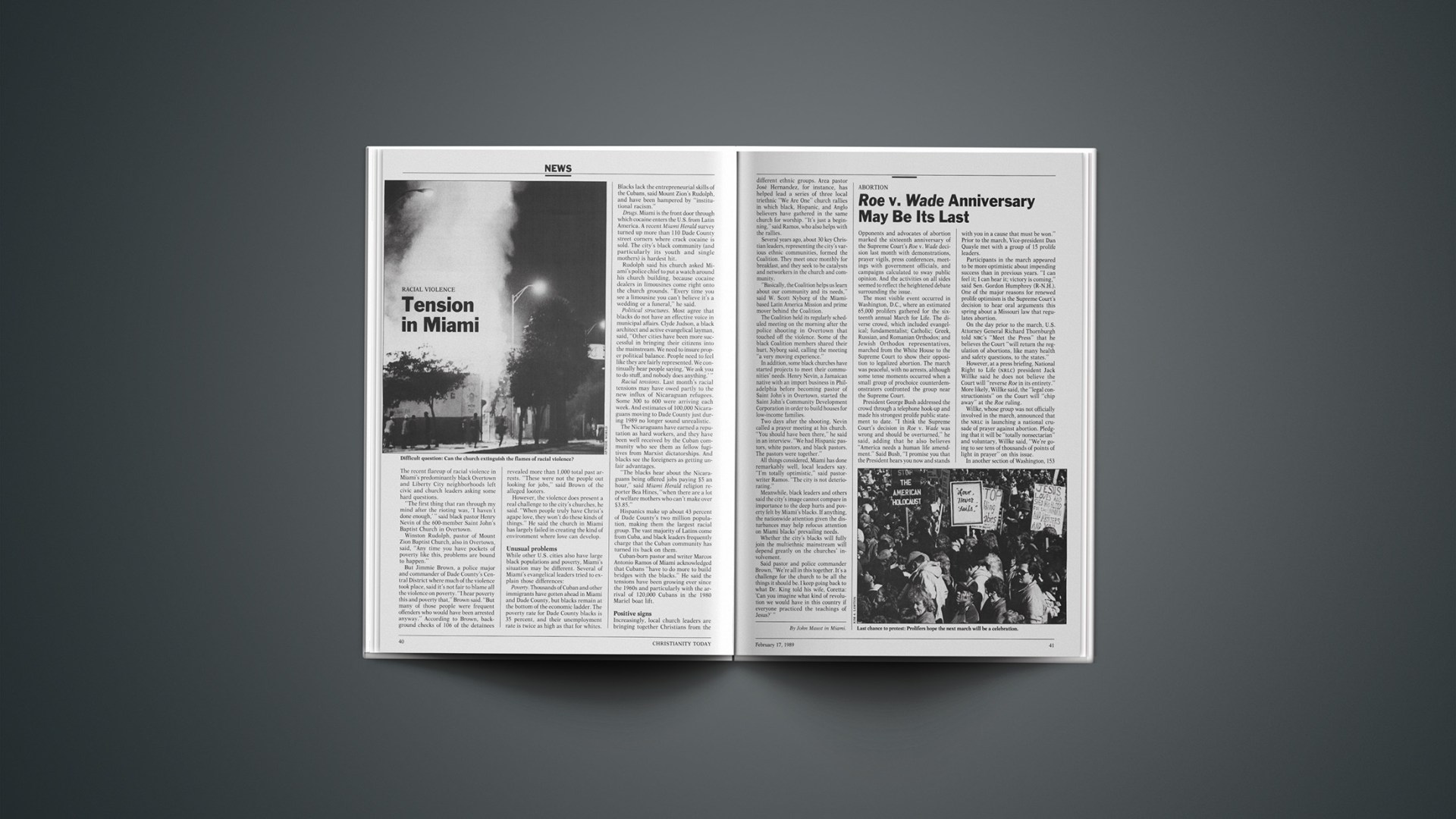A group of ministers and laymen in the Church of God (Cleveland, Tenn.) have formed an association called the Holiness Fellowship of America. Joseph Chambers, pastor of the Paw Creek Church of God in Charlotte, North Carolina, and the group’s national coordinator, says he and his associates are concerned about signs of change in their denomination. They are particularly upset about revisions made in the moral code at the church’s sixty-second general assembly, which met last August in Fort Worth, Texas.
The 1.8 million-member Church of God—America’s oldest Pentecostal denomination—has always been staunchly conservative, especially on lifestyle issues. For instance, the denomination’s moral code has prohibited movies, jewelry, makeup, mixed bathing, and the like. As the denomination expanded into urban areas, however, pressure mounted for the church to change. So last August, the general assembly removed many of the specific prohibitions, a move church leaders explained as “updating” the practical commitments of the denomination.
Although the Holiness Fellowship has other concerns, including charges of liberalism at the denomination’s Lee College, the actions of the general assembly last August served as a catalyst for the birth of the organization. Its first meeting, attended by some 300 ministers and laity, convened three weeks after the general assembly.
Since then, a steering committee has been appointed, with representatives from 11 states. It is not clear how many supporters belong to the loose-knit alliance, but Chambers claims to speak for “thousands of hurting laity and ministers.”
Chambers and other Holiness Fellowship spokesmen are quick to point out that they have no intention of pulling out of the Church of God. They say they are a reformist movement within the church.
Church officials are smarting from Chambers’s blanket attack. Assistant general overseer Lamar Vest defends the actions taken by the general assembly. Referring to changes made in the the moral code, he said, “That document was six years under study. There were regional meetings held across the country, where ministers and laity alike were invited to come and give dialogue.” More than 3,000 ministers voted in favor of the changes.
Lee College’s president, Paul Conn, dismissed the charges of liberalism at the denomination’s school, noting its commitment to “the very best of the Pentecostal tradition.” He said 80 percent of the student body and 90 percent of the faculty come from Church of God backgrounds.
With their next steering committee meeting coming in March, Holiness Fellowship leaders are hoping to get permission to meet in the chapel at Church of God headquarters in Cleveland, Tennessee. Chambers explains, “We think that will show good faith, that our purpose is not division, but rather reformation.”
By David Disch.










